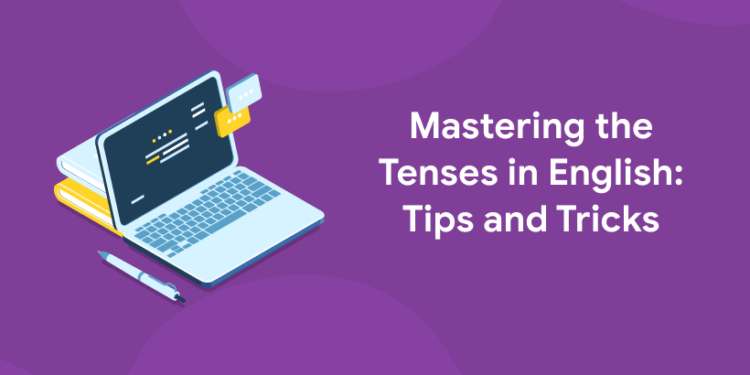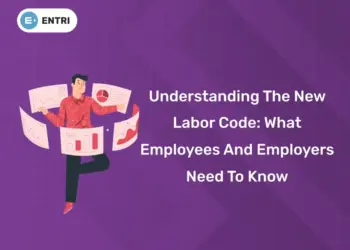Table of Contents
Improving your grammar can help you achieve success. Many individuals rely on grammar to express themselves, from novelists to business-people to students. However, mastering English grammar might be difficult. Fortunately, you may find a range of tools on the internet to assist you in your quest for better grammar. Whether you want to learn more about tenses and syntactic structures, or you just need a refresher on basic grammar terminology, a quick search can provide you with additional information and clarity, assisting you in your quest for better grammar
Mastering the Tenses in English: Tips and Tricks
Exploring the tenses in English is a fantastic place to start. You might be shocked to hear that English has over a dozen verb tenses in addition to past, present, and future. Understanding these tenses will help you write and talk more effectively.
Click here to learn more about English grammar rules
12 Tenses in English Grammar with Examples
1: Which of the sentences below is grammatically correct?
Let’s start with the fundamentals before moving on to more advanced tenses.
The Past, The Present and The Future
You may already be familiar with the past, present, and future tenses. The meaning of these tenses is self-explanatory. When we talk about something that has already happened, we use the past tense. Something that is currently happening or is an ongoing event is described in the present tense. Something that will happen in the future is described in the future tense. Consider the examples below.
Past: Children played.
Present: Children play.
Future: Children will play.
You can switch from present to past tense with regular verbs by adding the suffix “-ed.” Conjugating regular verbs are simple. The verb in the preceding example is a regular verb. This criterion, however, does not apply to all English verbs. Irregular verbs have their own set of laws. Consider the following examples.
Past: I ran.
Present: I run.
Future: I will run.
“Run” is an irregular verb as you can see. We don’t add “-ed” to modify the tense from present to past. Instead, we change the verb in a unique way. Conjugating an irregular verb is difficult since you must know the verb’s specific rules. Keep in mind, though, that many irregular verbs follow the same structure. Your task gets a lot easier after you’ve discovered the pattern.
Click here to attend practice questions from the chapter of articles
The same technique as for “sing” is used to conjugate the word “ring.” Many irregular verbs follow the same rules for conjugation. Students and learners of English must learn to categorise verbs. We decide which rules to apply by categorising them. This procedure may appear frightening, but it is rather simple. When native English speakers are asked to identify an irregular verb, they may struggle. They do, however, have a subconscious comprehension of the laws of the language. In the same way, English learners can master the language. Practice aids in recognising the English language’s natural flow. You build the abilities you need to manage new verb tenses as you learn to speak English fluently.
Register to boost up your English language skill by bettering your grammar
Perfect Tense
It can be difficult to know when to utilise the perfect tense. However, learning a few easy rules might help to clear up any ambiguity and correct common language errors. We always use the words “have” or “has” when using the perfect tenses. Let’s go over the three types of perfect: past perfect, present perfect, and future perfect.
Simple past: She ate lunch.
Past perfect: By the time I arrived, she had eaten lunch.
We include the verb “had” when we utilize the past perfect. We also changed the verb’s conjugation. “Had eaten” replaces “ate.” Are you unsure when to utilise the simple past tense vs the past perfect tense? Consider the meaning you wish to convey. The perfect tenses concentrate on the action’s outcome. The action is the emphasis on the simple past. The past perfect is used in the example above to highlight that the girl finished her lunch. Our attention is drawn to your arrival and the events that follow. We don’t concentrate on the food.
When describing cause and consequence in fiction, the past perfect tense is commonly used. They could also use the tense to talk about a series of events. In the preceding scenario, she had eaten her meal before you arrived. Readers are now eager to learn what happens next.
Let’s look at the present perfect for a moment. This tense refers to an action that took place in the past. It can also refer to an ongoing event. The meaning of a phrase can be muddled when employing the present perfect. Students are occasionally conflicted between using the past perfect and the simple present tense. Here’s a hint, the writer uses the present perfect to imply that the event has already occurred. The author also implies that the event is still taking place. Consider the following scenario.
Simple present: We tend to garden.
Present perfect: We have tended to the garden for a while.
Two crucial details are revealed in the preceding case. First and foremost, the speaker tends to the garden. Second, they have already tended to the garden for some time. Let’s take a look at another scenario.
Simple present: I live here
Present perfect: I have lived here for years
The present perfect allows us to convey a great deal more detail about your circumstances. It can be difficult to provide detail while utilising the simple present. The present perfect allows us to provide readers with more information. We can tell you how long Annie has been living in her current residence. The present tense is frequently used by writers to describe current occurrences. However, you might find it beneficial to use the present perfect tense in your writing on occasion. The present perfect might help to explain or give depth to your meaning.
Register for the best English coaching for 2022
Let’s have a look at the perfect future tense now. This tense, like the past perfect, defines when the action will occur. This tense is frequently used by writers to describe a succession of incidents. The past perfect assists us in discussing the timing and order of events. It’s simple to recognise the future perfect tense. We always use “will have” before the verb in the future perfect. Take a look at some of the following instances.
Simple future: I will finish the work.
Future perfect: I will have finished the work.
The future perfect tense does not highlight the future action. Rather, it concentrates on what will occur later. We aren’t focused on you finishing the work in the example above. Instead, we concentrated on the events that transpired as a result of that. We specifically imply that something will occur after the work is completed. The perfect tenses might aid in the clarification of meaning. It also draws the attention of the reader to specific events. We can improve our textual communication and avoid misunderstandings. In emails and chats, businesspeople frequently employ the future present tense.
Grab the latest study materials to learn tenses tricks for attempting exams
Perfect Progressive
Let’s look at the perfect progressive tense now. This tense denotes the passage of time. It also implies that a specific action is still in progress. Let’s look at a couple of examples. It’s worth noting that the verb in this tense is preceded by the words “have” or “will have.”
Simple past: The girl watered the plats.
Past perfect progressive: Before school, the girl has been watering plants.
Is there a pattern here? The sequence of events is clarified in the examples above. The verb tense is also used to indicate that these acts started or finished at a given moment. The perfect progressive tense can be used in a variety of ways by writers. However, the tense in each case implies a sense of continuity. It also signifies that the action has come to a conclusion. We can provide readers with more information by using the past perfect progressive tense. We can tell you when certain things happened. In academic and business writing, this tense is useful. Writers can explain when a major event came to a halt or began.
Now we’ll look at the progressive present tense. This tense emphasizes the fact that something happened in the past. This tense is used to indicate that the event is still going on.
Simple present: The girl sings.
Present perfect progressive: The girl has been singing for an hour.
This tense indicates that the event will most likely continue: The girl has been singing for an hour and is still singing. The present perfect progress also provides meaning to textual conversations. This tense can be used to inform co-workers or classmates about current happenings.
Click here to learn tenses tricks to improve your spoken English skills
Let’s look at the progressive tense in the future. This tense refers to actions that have started or will start in the near future. These actions will continue, according to the future progressive tense. Take a look at some of the following instances.
Simple future: They will practice
Future perfect progressive: By the day of the competition, they will have been practicing for 2 weeks.
Is this tense sounding familiar? The future perfect progressive and the future perfect tense have certain similarities. However, there are a few significant distinctions to be aware of. The future perfect progressive implies that the action will continue. However, the future perfect has a deadline.
This tense, like the other perfect progressive tenses, aids in the clarification of your meaning. It can clear up any ambiguity about event sequences. The perfect progressive tenses are frequently used in business writing to explain when certain occurrences will occur.
Grab the latest mini mock tests series to practice the tenses tricks you learned
Conditional Tenses
Conditional tenses are also used in the English language. These tenses convey the possibility of something happening in specific situations. The conditional tenses may appear perplexing or ambiguous at first. With a little work, pupils may easily learn this tense. Both academic and business communications benefit from conditional tenses. This tense could be used by your colleagues and lecturers to reach an agreement. You can use this tense to negotiate with clients if you master it. It also enables you to delegate duties to co-workers or classmates. Let’s start with the simple conditional tense. The word “would” is always used in this tense.
Conditional simple: I would go to school, but I have a severe toothache.
This tense is frequently used by English speakers and writers to describe why they are unable to perform something. They are willing to help, but they foresee obstacles.
Click here to learn advanced tenses tricks for English skill tests
Let’s look at the conditional progressive tense now. This tense addresses the duration of a potential occurrence. The words “would be” are always used in conditional progressive.
Conditional progressive: She would be leaving, but she couldn’t complete the work.
This tense indicates that If additional conditions are met, an ongoing action may occur. This tense, like the conditional perfect tense, is commonly used in business interactions. This tense can be used by writers to describe a difficulty or a missed deadline.
Let’s look at the conditional perfect tense for a moment. If the favorable conditions were satisfied, an action may have taken place in this tense. The tense also conveys that it is now too late to act.
She would have written the homework, but her hand is fractured.
The perfect conditional progressive tense is closely related to the conditional perfect. However, there is one significant difference: this tense employs the word “been” and a verb ending in “ing.”
Conditional Perfect Progressive: we would have been cleaning the yard if it hadn’t rained.
Register to learn tenses tricks to improve grammar in conversations.
Don’t be too worried if you feel a bit confused about these rules. The correct use of tense is fairly simple to master with practice. Keep in mind that some errors are unavoidable; even native English speakers can get confused about grammar conventions like spelling and verb tenses. Download the Entri app to help you, and anyone else who needs a refresher, brush up on your English skills and become a grammar expert.









